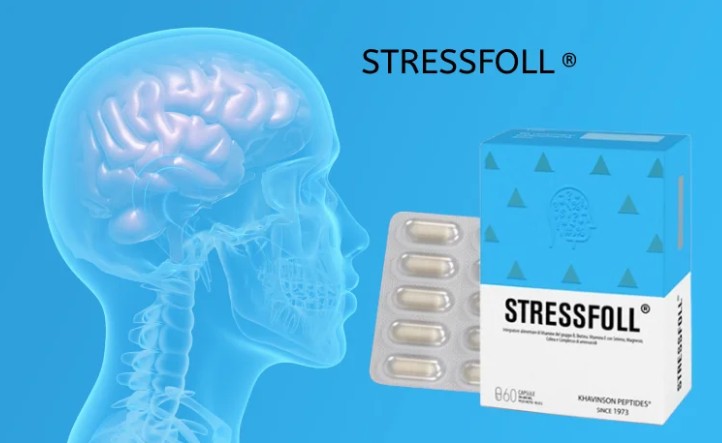
Addiction recovery is a journey that requires patience, commitment, and the right support. This process involves several critical stages for guiding individuals toward lasting change. Effective alcohol abuse treatment addresses both physical and psychological aspects of addiction. Choosing a professional rehab centre becomes the most reasonable solution. These facilities provide a safe environment for recovery and focus on essential steps, which we will discuss in this article.
Rehab Intake
The rehabilitation process begins with the intake stage. Specialists at an alcohol rehab centre gather initial information about the individual’s addiction history. This data helps them understand substance use patterns, triggers, and co-occurring disorders. The intake stage sets the basis for creating a tailored treatment plan.
During intake in Cherry Hill detox center, healthcare professionals also establish trust with the patient. Building a sense of safety and openness encourages honest communication. This connection is vital for the effectiveness and success of further treatment stages.
Clear documentation ensures that every team member involved in treatment understands the individual’s needs. This awareness contributes to a smooth transition to the next phase and helps healthcare professionals identify any concerns that need immediate intervention.
Assessment
Assessment gives a more detailed picture of both physical and mental health conditions. Specialists use blood tests, psychological evaluations, and other diagnostics to get a complete view. These methods identify any underlying issues and triggers contributing to the addiction.
Personalized care plans depend heavily on accurate assessments. Whether it’s trauma, anxiety, or depression, each factor needs a distinct approach to overcome it. Remember, treatment is not just about quitting substances but also about holistic healing.
Regular reassessments are an integral part of the rehab process. If specific therapies prove more effective than others, healthcare professionals make appropriate changes to the overall plan. This ongoing evaluation keeps treatment aligned with the individual’s evolving needs.
Detoxification
Detoxification is a critical step in addressing the physical aspects of addiction. During this stage, harmful substances are safely removed from the body under medical supervision. Withdrawal symptoms are carefully managed to prevent potential complications.
Medical professionals often prescribe medications to ease withdrawal effects. Professional assistance makes the process safer and more comfortable. The detox stage builds an essential foundation for ongoing treatment.
Once the body is free from substances, individuals can focus on emotional and psychological healing. Detox clears the way for the deeper work ahead. It also reduces the immediate physical risks associated with substance withdrawal.
Rehabilitation: Therapy and Counselling
Drug and alcohol rehab focuses on identifying and addressing the root causes of addiction. Therapy sessions, whether individual or group-based, provide tools for managing triggers and building healthier habits. Cognitive-behavioural therapy (CBT) is a common approach, but modern facilities offer a broad spectrum of other methods and techniques. These methods are designed to help individuals change destructive behaviours by developing self-awareness and promoting positive thought patterns. By understanding the underlying motivations behind their actions, individuals can develop strategies to overcome them.
Emotional healing is just as important as physical rehabilitation. Many individuals confront past trauma or unresolved conflicts in this stage. Addressing these issues contributes to all-round recovery and reduces the risk of relapse.
Individual and group sessions provide coping strategies to handle stress and emotional triggers. These tools remain helpful even after the rehab phase ends. Building these skills can reduce stress and prevent emotional complications associated with withdrawal symptoms.
Intensive Outpatient Program (IOP)
Many individuals turn to IOPs (intensive outpatient programs). These treatment plans offer a structured yet flexible approach to recovery. Individuals can live at home while attending regular therapy sessions. This stage bridges the gap between inpatient care and full independence.
IOPs are ideal for those who need continued support but don’t want to opt for residential programs. Therapy sessions focus on relapse prevention and developing stress-management skills. These programs help individuals regain confidence in managing daily responsibilities.
Consistency is key in this phase. Regular attendance and active participation significantly influence long-term success. Support from peers and family remains a cornerstone, providing much-needed support. Building a strong support system is critical to preventing relapse, especially when life’s challenges become overwhelming.
Post-Treatment Plans
Post-treatment planning begins before individuals leave formal rehab programs. Therapists and counsellors create tailored aftercare strategies, including relapse prevention techniques and ongoing therapy schedules. These plans are often reviewed and adjusted based on evolving needs.
Ongoing support plays a significant role in this stage. Whether through peer support groups or individual counselling, consistent connection reduces the feeling of isolation. A solid aftercare plan empowers individuals to navigate challenges with confidence. It provides a roadmap for maintaining long-term sobriety.
Release
The release stage marks the transition back into everyday life. Individuals re-enter their regular environments equipped with new skills and coping strategies. This stage requires careful preparation to minimize the risk of relapse.
Family and friend support is crucial during this challenging time. Their encouragement helps individuals feel grounded and supported in their recovery journey. Ongoing therapy remains essential even after formal treatment ends. Regular check-ins with counsellors and support groups ensure continued progress.
Ongoing Care and Support
Ongoing care ensures that individuals maintain progress after inpatient treatment. Support systems, including therapy sessions and 12-step programs, provide a sense of accountability and emotional reinforcement.
Continued engagement in aftercare activities helps individuals recognize and address early signs of relapse. This phase also emphasizes the importance of maintaining a balanced lifestyle. Activities such as regular counselling, goal setting, and participation in AA communities create a strong foundation. Commitment to ongoing care significantly reduces the risk of returning to old habits.
A Lifelong Commitment to Recovery
Addiction treatment requires willpower and lifelong commitment. Each step builds on the one before, creating a strong foundation for lasting change. With the right support and resources, recovery is possible for everyone. Each stage, from intake to release, plays a vital role in rebuilding fulfilling lives. Focus on each next step with dedication and open the door to a brighter, substance-free future!
Write and Win: Participate in Creative writing Contest & International Essay Contest and win fabulous prizes.


